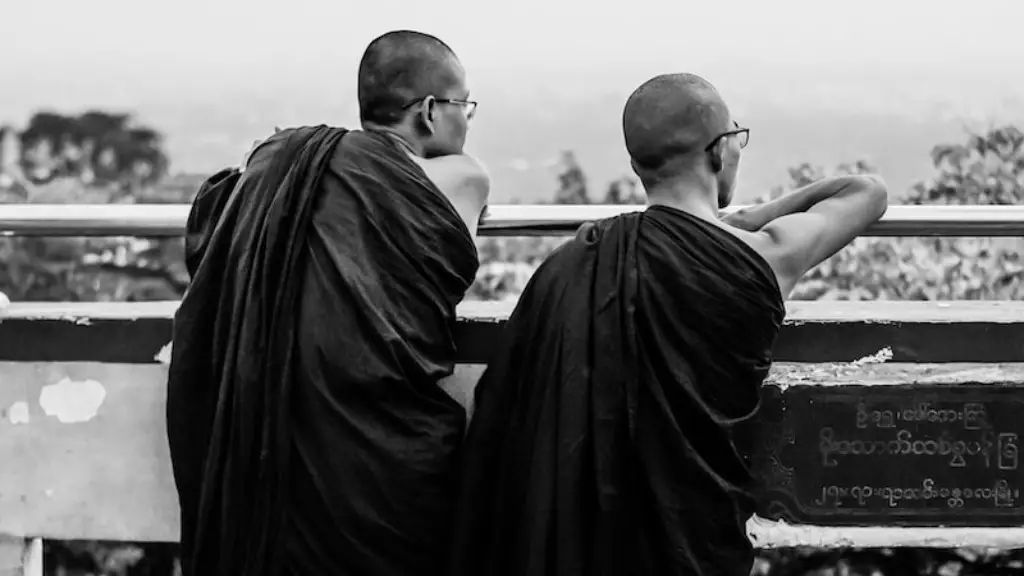Hinduism is one of the oldest known religions in the world and has been practised for over five thousand years. Hinduism’s traditions, beliefs and rituals can vary greatly, even amongst its adherents. These beliefs form the basis for the practice and transmission of a vast array of spiritual and religious thought from generation to generation. Ultimately, despite the variations between denominations within Hinduism, many tenets of its beliefs are the same.
Belief in Karma
Most adherents to Hinduism believe in the concept of karma. Karma is the notion that one’s action in this life exchanges with the next, such that deeds and misdeeds will have an eventual impact on the individual’s soul in the afterlife. The ultimate goal in Hinduism is to build good karma, to achieve nirvana – a concept of heavenly peace through the destruction of earthly greed and desires.
Dharma’s Role
The concept of Dharma is integral to life in Hinduism. Dharma refers to righteousness or the correct path that must be followed to lead the faithful on their personal journey to moksha (salvation). This path involves adherence to certain ethical and moral codes to ensure good personal conduct and a harmonious relationship with all aspects of a follower’s life, from family and friends to the natural environment.
The Caste System
The Caste System is also an important part of Hindu belief. The system is made up of four varnas or categories of people. These castes provide structure and order to Indian society, and together are said to form the body of Hinduism. Each caste has its own unique qualities and responsibilities, with the highest caste being that of the Brahmins or the intellectual and spiritual leaders of the community.
Belief in Reincarnation
Hinduism also has beliefs in the cycle of life and death which continues until the individual has reached moksha or nirvana. This is known as samsara and involves the passing on of souls from one body to another, upon death. Each incarnation is said to give the individual another opportunity to accumulate good karma and advance their soul’s journey towards ultimate liberation.
The Nature of the Divine
Hinduism has no clear definition of a single god, with the principle of Brahman believed to exist within each person, such that worshipping and acknowledging any particular deity is still considered veneration of the same divine entity.
Hindu Texts
The Hindu scriptures are vast and can be divided into two genres – Shruti and Smriti. Shruti, or the Vedas, refers to divine revelations that were heard by the sages and subsequently written down in the ancient language called Vedic Sanskrit. In contrast, Smriti or the Upanishads refer to a collection of writings which relay the teachings of afterlife, karma, or moksha.
The Concept of Dharma
The concept of Dharma is an important aspect of Hinduism and refers to the ethical path individuals must follow in order to ensure their own personal journey towards moksha. Dharma not only includes living one’s life according to set codes of ethical behaviour, but also to embrace the duty, roles and responsibility of one’s caste or family.
The Power of Ahimsa
Hinduism promotes ahimsa (non-violence) as a way of life, as one of its five main ethical precepts. Ahimsa puts the responsibility of non-violence upon each individual, to use their awareness of what is right and wrong to act in an appropriate manner. Within its teachings, Hinduism also states that all living creatures possess a divine essence and therefore should be respected and treated with kindness.
Festivals and Celebrations
The celebration of festivals and special occasions is a major part of Hinduism. These occasions serve to reinforce traditional values, religious beliefs, and a sense of unity and belonging. The most celebrated Hindu festival is Diwali, which is the celebration of light over darkness and celebrates the victory of good over evil.
The Meaning of Moksha
Moksha is the ultimate goal of Hinduism and refers to the concept of liberation from the cycle of birth and death, whereby the individual’s soul is finally released from the burden of karma. Moksha can be achieved through devotion and consistent following of the spiritual path laid out by the dharma.
The Significance of Puja
Puja is the act of offering devotion to a deity or a divine presence and is a part of daily life in Hinduism. During Puja, offerings are made of grain, flowers, fruit and incense. These offerings are meant to represent the individual’s soul offering its gratitude to the divine spirit for freeing it from suffering. This process serves to empower and uplift the spirit, helping it become liberated from the material world and become one with the divine spirit.
